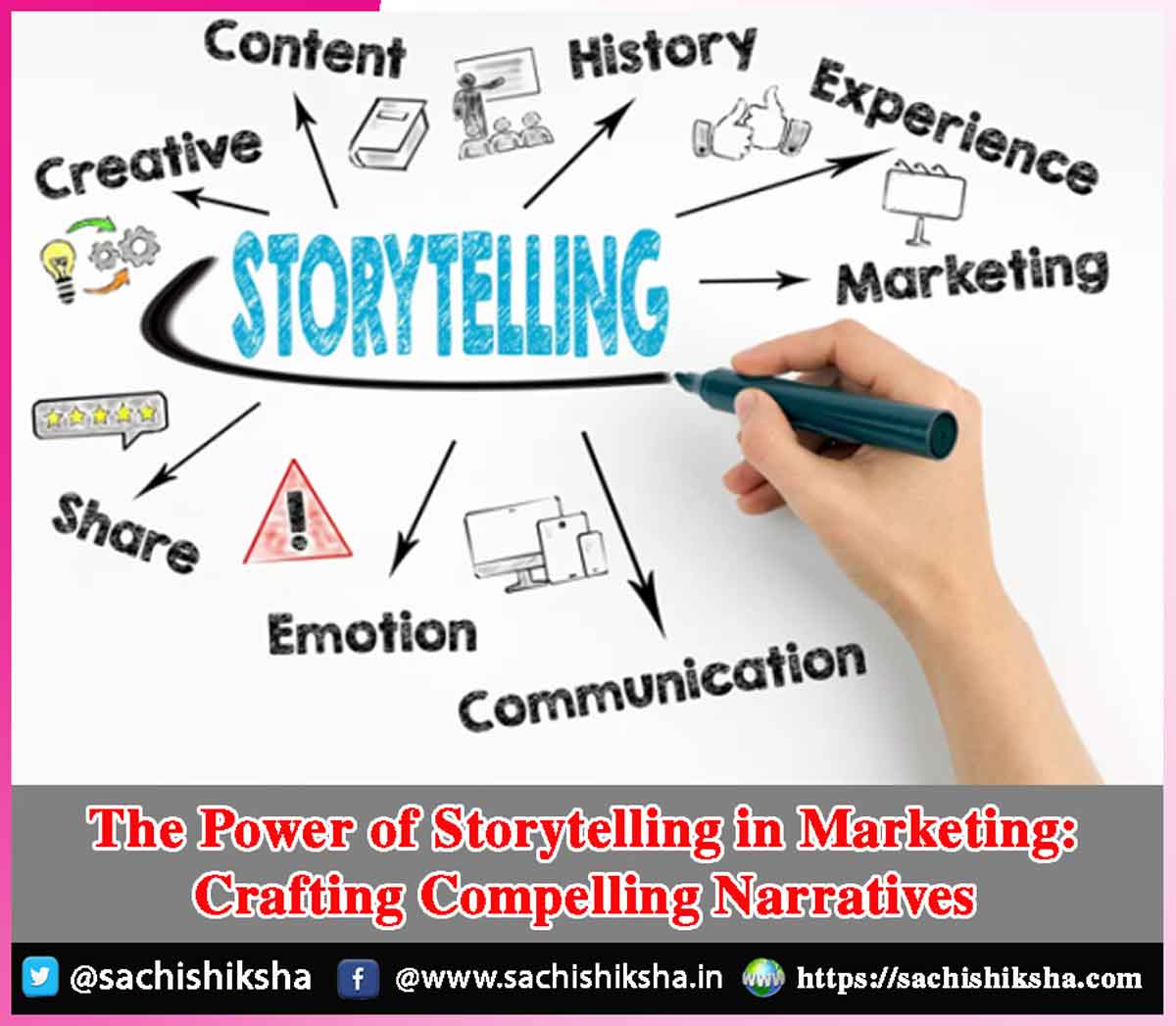The Power of Storytelling in Marketing: Crafting Compelling Narratives
Introduction: In the highly linked world of today, where customers are swamped with overwhelming information, traditional marketing strategies often need to catch up in capturing attention and fostering meaningful connections.
This is where storytelling emerges as a powerful tool for marketers. By crafting compelling narratives, brands can cut through the noise, evoke emotions, and create lasting impressions on their audience.

Table of Contents
Understanding the Importance of Storytelling in Marketing:
Humanizing Brands:
Stories have the unique ability to humanize brands, making them relatable and engaging to consumers. By constructing stories around their goods or services, brands can create emotional connections that resonate with their audience.
Building Trust and Loyalty:
Authentic storytelling fosters trust and loyalty among consumers. When brands share their values, beliefs, and experiences through narratives, they establish a sense of authenticity that resonates with consumers on a deeper level.
Setting Brands Apart:
In crowded markets, storytelling sets brands apart from competitors. Compelling narratives differentiate brands by creating unique identities and value propositions that appeal to the intended demographics.
Key Elements of Crafting Compelling Narratives:
Authenticity:
- Authentic storytelling is rooted in honesty, transparency, and sincerity. Brands must align their narratives with their core values and beliefs to establish consumer credibility and trust.
- Authenticity involves showcasing the brand’s human side and sharing real stories, experiences, and emotions that resonate with the audience on a personal level.
Emotional Resonance:
- Emotions are at the heart of compelling narratives. By evoking emotions such as joy, nostalgia, empathy, or inspiration, brands can create memorable experiences that leave a lasting impression on consumers.
- Emotional resonance prompts consumers to establish a stronger connection with the brand, encouraging brand loyalty and advocacy.
Relevance:
- Compelling storytelling is tailored to the target the audience’s interests, preferences, and values. The brands must understand their audience`s demographics, psychographics, and cultural nuances to create narratives that resonate with them.
- Relevance ensures that storytelling efforts are meaningful and impactful, capturing the attention and engagement of the intended audience.
Strategies for Crafting Compelling Narratives:
Know Your Audience:
- Analyze your target audience’s demographics by conducting market research and audience analysis, behaviors, and preferences.
- Develop buyer personas to understand the needs, aspirations, and problems various audience segments face.
Identify Core Themes and Messages:
- Define the key themes, messages, and values that align with your brand concept and appeal to your customers.
- Craft narratives that communicate these themes compellingly and authentically, highlighting the unique aspects of your brand.
Use Visual Storytelling:
- Leverage visual elements such as videos, images, and info-graphics to enhance the storytelling experience.
- Visual storytelling captivates audiences and conveys messages more engagingly and memorably than text alone.
Incorporate User-generated Content:
- Invite clients to retell, experience, and provide testimonials regarding your company.
- Use user-generated material in your narrative endeavors to highlight authentic, relatable narratives that resonate with your audience.
Real-world Examples of Effective Storytelling in Marketing:
Nike:
Nike’s “Just Do It” campaign is a prime example of storytelling that inspires and empowers consumers. By showcasing real athletes overcoming challenges and pursuing their dreams, Nike motivates its audience to push beyond their limits and embrace the spirit of determination.
Airbnb:
Airbnb’s the “Belong Anywhere” campaign celebrates the diversity and inclusivity of travel experiences worldwide. Through user-generated content and personal stories, Airbnb creates a sense of belonging and cultural exchange that resonates with its global community of hosts and guests.
Apple:
Apple’s marketing campaigns are renowned for their minimalist yet powerful storytelling. From the iconic “1984” commercial to the heartfelt “Shot on iPhone” campaigns, Apple creates emotional connections with consumers by highlighting the transformative impact of its products on people’s lives.
Conclusion
Storytelling is more than just a promotional strategy. It’s a powerful tool for building connections, fostering trust, and driving engagement. By crafting compelling narratives that are authentic, emotionally resonant, and relevant to their audience, brands can cut through the clutter and leave a lasting impression on consumers. In an increasingly competitive landscape, mastering the art of storytelling is essential for brands seeking to differentiate themselves and forge meaningful relationships with their audience.












































